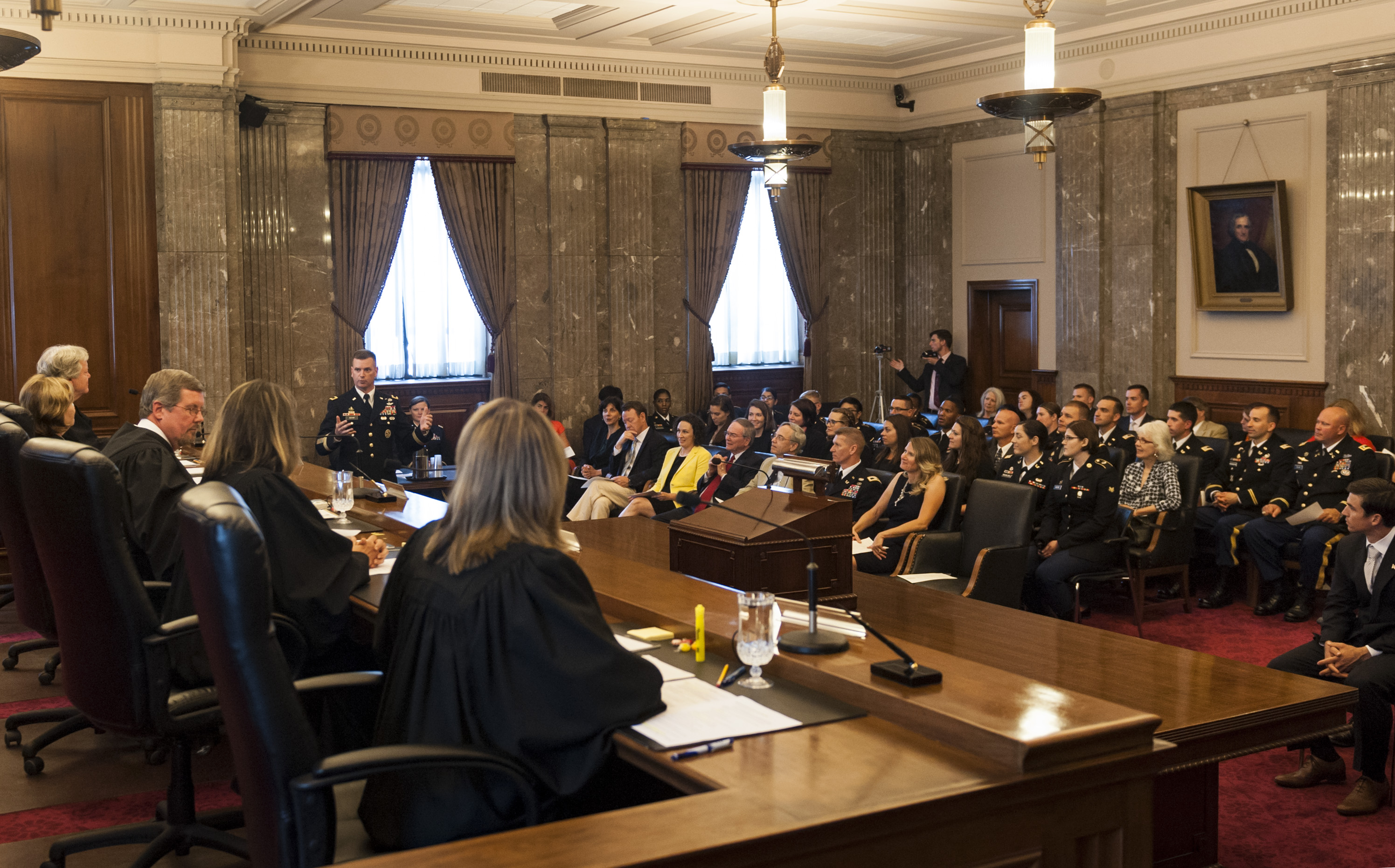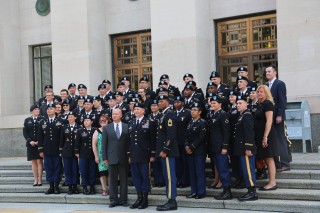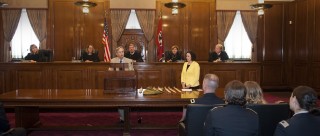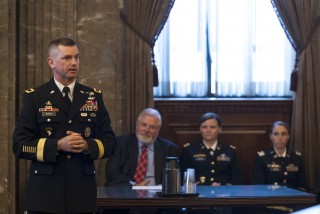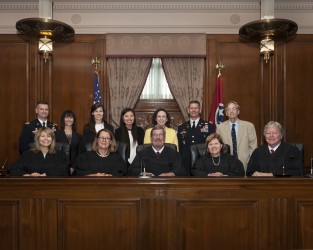The Tennessee Supreme Court and 53 members of the 101st Airborne Division and 5th Special Forces Group, stationed at Fort Campbell, Kentucky, recently celebrated the Supreme Court’s Revised Military spouse Rule (Rule 7), which permits attorney spouses of those in the military to obtain temporary law licenses to practice in Tennessee while their active-duty spouse is stationed in Tennessee at a military installation.
Brigadier General Todd Royar, Deputy Commanding General of the 101st Airborne Division and members of the 5th Special Forces Group were welcomed by Secretary of State Tre Hargett. Hargett is the son of Major General Gus Hargett. The group toured the State Capitol and experienced the Bicentennial Mall along with the architect and visionary for the Mall, Kem Hinton. Major General Andrew Poppas, Commanding General of the 101st Airborne Division, was attending D Day commemoration in Normandy, France.
Following the Court’s official arguments, all five justices participated in the ceremony to recognize four recently admitted attorneys to the Tennessee Bar through the revised Military Spouse Rule. Chief Justice Jeff Bivins opened the ceremony by discussing the meaningful sacrifices made by military and their military spouses.
“Our country has approximately 650,000 active duty military spouses and the unemployment rate within this group currently stands at approximately 20 percent,” he said. “By comparison, the national unemployment rate provided by the Bureau of Labor Statistics has remained between 4.4 and 4.8 percent in 2017.”
Chief Justice Bivins noted that economic conditions often require both spouses to work; particularly in military families, yet that can be very difficult when military service requires a family to move to a new location every two to three years. He underscored the Court’s desire to assist and support Tennessee’s military spouses and their individual families as well as our men and women in uniform.
Justice Connie Clark gave an overview of the history and impact of the Military Spouse Rule change noting that not only did the Court receive comments from several Bar organizations, but also from more than 100 Tennessee attorneys who are military veterans. Commenters provided factual information to support the change including the fact that 79 percent have moved across state lines in the preceding five years making it nearly impossible for attorney spouses-95 percent of whom are women-to fulfill individual state requirements for reciprocity or comity admission.
“This inability to obtain admission in the new state results in a potential income loss of $33,745 per year,” said Justice Clark.
Under the revised Military Spouse Rule, attorney spouses are not required to take the Bar exam again if they previously passed the exam in another state. The attorney spouses may be admitted as long as they are licensed in another state and meet Tennessee’s appropriate ethical requirements.
Justice Holly Kirby recognized the four new admittees including Joanna Brake Ragon, her Supreme Court law clerk. The other three admittees are Tessa Allen Linde, Maria Stephanie Quimson Campbell, and Joseph Michael Kendrick.
Chief Justice Jeff Bivins recognized several individuals who were instrumental in the process, including Josie Beets, President, Military Spouse JD Network, Judge George Paine, Jack Turner, of Jack B. Turner & Associates, Willy Stern, Chair of the Legion Fund Advisory Board, and Martha Boyd, Shareholder at Baker Donelson Bearman, Caldwell & Berkowitz, PC.
During the recognition event, Judge Paine, on behalf of the Legion Fund, and to show the gratitude of the 5th Special Services Group at Ft. Campbell, presented each justice with a gladius, a gift reserved for members of the Green Beret upon retirement. Learn more about Tennessee’s Military Spouse Rule, Supreme Court Rule 7.
